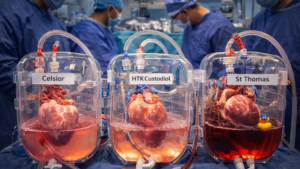
Association Between Cardiopulmonary Bypass Weaning Time and Adverse Outcomes in Patients With Aortic Dissection Who Underwent Total Arch Replacement Combined With Stented Elephant Trunk Implantation
This retrospective single-center study of 475 patients with acute type A aortic dissection undergoing total arch replacement with stented elephant trunk implantation found that prolonged cardiopulmonary bypass (CPB) weaning time was independently associated with increased in-hospital mortality and postoperative stroke. A cutoff of 90 minutes strongly predicted early mortality and reduced short-term survival, though mid-term survival was unaffected.










